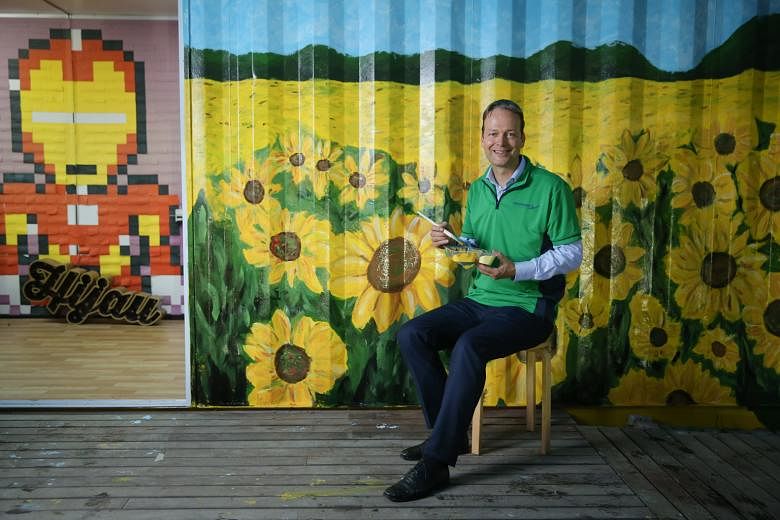Sustainability is business, and business is sustainability.
That is the message AkzoNobel's global chief executive Ton Buchner has for Singapore businesses, many of which are making only their first forays into sustainability.
The 51-year-old Dutchman was surprised when he was told Singapore had implemented compulsory sustainability reporting here only this year.
Recent reports have also shown that the majority of Singapore-listed companies are still not reporting on their sustainability practices.
For the Netherlands-based company which produces Dulux decorative paints and coatings which are applied to surfaces of marine vessels and airplanes, sustainability has been good for business.
Mr Buchner, who came in as chief executive in 2012, said the company took its first steps in sustainability by making targets, measurements and learning how to incorporate the measures into its company.
The company went one step further: It made sustainability part of the calculation which goes into the remuneration of staff.
For the company's top 600 executives, a portion of their salaries is directly linked to how well the company does on the Dow Jones Sustainability Index. This is an index set up in 1999 as the first global sustainability benchmark, which assesses the world's leading companies in terms of economic, environment and social criteria.
For these employees, part of their salaries is made up of the long-term incentive. In all, 30 per cent of this incentive, which consists of performance-related shares, is dependent on AkzoNobel's sustainability performance.
"Sustainability has always been a core part of the remuneration, and that is part of how to make it impact the behaviour of employees," said Mr Buchner.
Singapore has been a driver of the company's sustainability business.
For instance, AkzoNobel developed the Dulux Weathershield KeepCool paint here.
The paint reduces exterior temperatures by as much as 5 deg C, reducing energy use in homes.
The company's global head office of marine coatings was moved to Singapore from Britain in 2013, and has developed in collaboration with the UK research centre a coating which reduces energy use for marine vessels by 9 per cent.
Mr Buchner said that the company's marine coating business has taken a hit from the downturn in the marine business.
Its financial results for the third quarter this year showed its performance coatings business was down 2 per cent from last year, given tough industry conditions.
Mr Buchner said that while the marine sector is under pressure, "not everyone is 'short-term' in thinking; there are a lot of forward-thinking customers" who are interested in the fuel savings from the marine coatings.
He added that the downside in marine is mitigated by the company's growing business in decorative paints, and that it will continue innovating to create sustainable products.
The company aims to achieve 20 per cent of its revenue from solutions that have a sustainability benefit by 2020, he said.
For companies looking to take the first step in making sustainability the heart of business, Mr Buchner says that conviction is the key.
"Leaders of companies need to say to their employees: 'We need to be committed for 10 years. Otherwise, don't do it. Be serious about it, don't do green washing'," he said.
"You need to demonstrate to your employees that you make sustainable decisions, as opposed to decisions based on money.
"Then, your employees will come with you on your sustainability drive," he added.
Correction note: This story has been updated for clarity.


